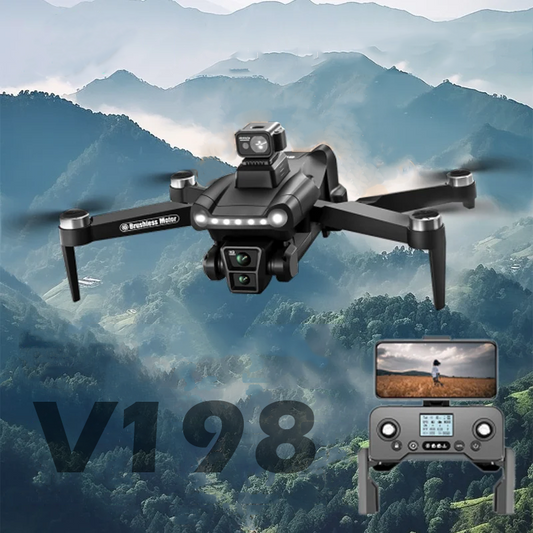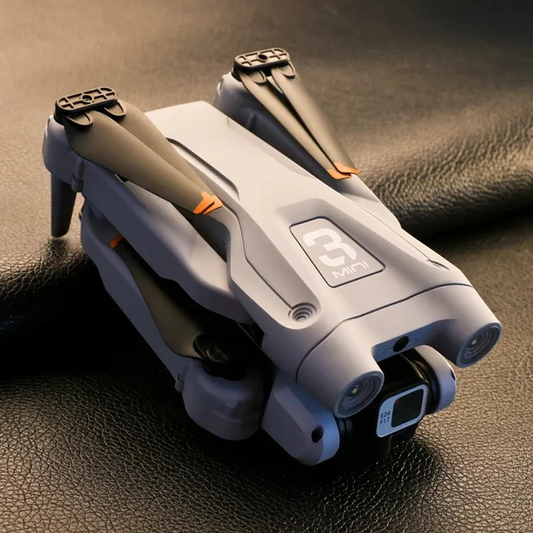The Impact of Drones on Ecotourism

In recent years, drones have become more than just remote-controlled gadgets for enthusiasts. They have evolved into powerful tools that are reshaping various industries, and one area where their impact is particularly pronounced is in ecotourism. The marriage of drones and ecotourism is unlocking new perspectives, enhancing visitor experiences, and contributing to the conservation of our planet's most precious natural wonders. In this article, we will explore the transformative influence of drones on ecotourism, examining the benefits, challenges, and the promising future these technological marvels hold for sustainable travel.
1.Enhancing Visitor Experiences

Ecotourism thrives on the promise of unique and immersive experiences in natural environments. Drones, with their ability to capture breathtaking aerial footage, have revolutionised the way travellers engage with these destinations. Imagine soaring over lush rainforests, gliding across vast savannas, or witnessing cascading waterfalls from a bird's-eye perspective. Drones provide an unparalleled opportunity to showcase the grandeur of nature, enabling ecotourists to appreciate the scale and beauty of ecosystems in ways previously reserved for birds or mountaineers.
These mesmerising aerial views not only captivate audiences but also serve as powerful tools for marketing and promotion. Ecotourism destinations can leverage drone footage to create compelling visual narratives that attract environmentally conscious travellers seeking unique and authentic experiences.
2.Conservation through Documentation
Drones play a crucial role in conservation efforts by providing researchers with a novel and efficient means of data collection. Whether monitoring wildlife populations, tracking habitat changes, or assessing the impact of climate change, drones offer a non-intrusive method of gathering essential information.
In ecotourism, this means that the very act of using drones contributes to the preservation of natural habitats. By supporting ongoing research and conservation initiatives, ecotourists become active participants in the protection of the environments they explore. This symbiotic relationship between tourism and conservation fosters a sense of responsibility and stewardship among visitors, creating a positive feedback loop that benefits both the industry and the ecosystems it relies on.
3.Access to Remote and Fragile Ecosystems

Many ecotourism destinations are situated in remote or difficult-to-access areas, making traditional methods of exploration challenging and sometimes harmful to the environment. Drones, with their ability to traverse rugged terrain and reach inaccessible locations, open up new possibilities for ecotourists.
These flying devices allow visitors to explore fragile ecosystems without causing disturbance or damage. Drones can hover over delicate flora, scan inaccessible cliffs, and venture into areas where human presence might be disruptive. This expanded access not only enriches the ecotourist experience but also minimises the ecological footprint associated with exploration, aligning with the principles of sustainable and responsible tourism.
4.Educational Opportunities
Ecotourism is not just about experiencing nature but also about understanding and appreciating it. Drones serve as educational tools that bring lessons from the natural world to life. Live streaming or recorded footage captured by drones can be integrated into guided tours or educational programs, providing visitors with insights into the intricacies of ecosystems and the importance of biodiversity.
For instance, drone footage can highlight the migratory patterns of endangered species, showcase the delicate balance of ecosystems, or illustrate the impact of human activities on natural habitats. This educational component not only fosters a deeper connection between ecotourists and the environments they visit but also promotes environmental awareness and conservation-minded behaviour.
5.Challenges and Considerations

While the integration of drones into ecotourism brings about numerous benefits, it is essential to address potential challenges and ethical considerations. Privacy concerns, noise pollution, and the potential disturbance to wildlife are valid worries that must be carefully managed. Implementing clear guidelines and regulations, along with educating both operators and visitors, is crucial to ensuring the responsible use of drones in ecotourism.
Additionally, the environmental impact of drone production and operation should be taken into account. Manufacturers and operators should prioritise sustainable practices, and ecotourism businesses should seek out eco-friendly drone options to align with their commitment to environmental conservation.
6.The Future of Ecotourism with Drones

As technology advances and regulations evolve, the future of ecotourism with drones appears promising. Developments such as improved battery life, quieter propulsion systems, and enhanced obstacle avoidance capabilities will further mitigate some of the challenges associated with drone use. Integrating artificial intelligence into drone technology may also open up new possibilities for data analysis, allowing for more sophisticated monitoring of ecosystems and wildlife.
Furthermore, the use of augmented reality (AR) and virtual reality (VR) technologies in conjunction with drones could offer virtual ecotourism experiences, allowing individuals to explore and learn about natural wonders from the comfort of their homes. This could serve as both a supplementary educational tool and a means of democratising access to the beauty of remote environments.
Drones have undeniably made a profound impact on ecotourism, transforming the way we explore, understand, and appreciate the natural world. From providing awe-inspiring aerial views to contributing to conservation efforts and offering educational opportunities, drones have become valuable assets in the toolkit of sustainable tourism.
As ecotourism continues to gain popularity and the demand for unique and immersive experiences grows, the responsible integration of drone technology will play a pivotal role in shaping the industry's future. By navigating the challenges, adhering to ethical guidelines, and embracing technological advancements, ecotourism can harness the full potential of drones to create meaningful, memorable, and environmentally conscious travel experiences.
Explore a variety of drones at our online drone store.
Happy Flying!









